Spartan staff essential to efforts of award-winning MSU Dairy Farm
MSU Dairy Cattle Teaching and Research Center named best nationally by National Quality Dairy Awards

EAST LANSING, Mich. – "I am here for the cows on the day they are born, and if mom needs help calving her baby, I’m there to help. I’m here when the cows get sick, and I’m here to provide maternity care when they are having their own calves down the line. Our staff are here at 2 in the morning until all hours of the night – in the cold and the rain and the snow – all because we love the cows and we are committed to the MSU Dairy Farm.”
That is the life of MSU Dairy Cattle Teaching and Research Center herdsperson Carolyn Dominguez and the full-time staff at the fully operational, 220-cow teaching and research dairy farm located just south of MSU’s East Lansing campus.
The staff, led by Farm Manager Jim Good and Assistant Farm Manager Chris Pawlanta, are the backbone of the day-to-day operations.
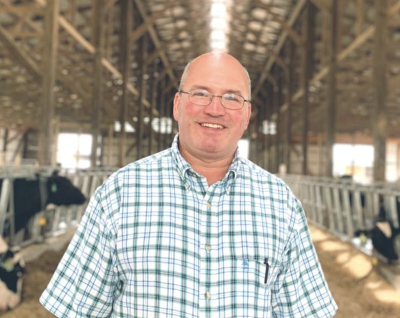
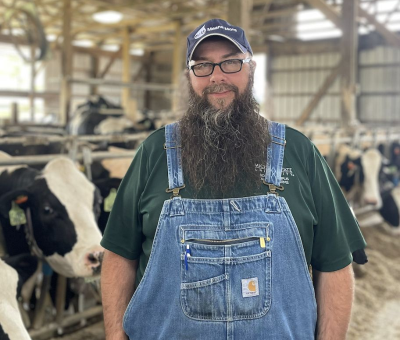
MSU Dairy Farm staff work to ensure the health and well-being of MSU’s cows and the quality of the milk they produce while also holding unique responsibilities as mentors for the next generation of dairy farmers and safeguarding grant-funded research.
“Our staff are not only the highest quality herdspeople, but they also have second jobs as teachers,” said Jim Good, who has been farm manager since 2020. “Alongside the daily toils and tasks of running an award-winning dairy farm, full-time staff mentor and train new student employees each semester to quickly get them up-to-speed on the farm’s daily operation.”
Its unique structure does not hinder the farm from achieving its core mission of producing the highest quality milk and setting the standard for animal welfare and sustainability. This success was recognized by the National Mastitis Council when it named the MSU Dairy Farm one of six Platinum Award winners for 2024.
Dairy farms of all sizes in all regions are evaluated on measures of milk quality, systems of monitoring udder health, milking routine, protocols for detection and treatment of clinical and subclinical cases, treatment protocols and strategies for overall herd health and welfare. Good and faculty from MSU’s dairy research team represented MSU at the award ceremony in Texas.
“I’m very proud of our work and our team receiving this honor,” Good said. “When we went to receive the award, it was like the MSU football team going to the Rose Bowl. It’s a huge honor and recognition for what our staff and faculty do at the MSU Dairy Farm. To manage more than 200-cows all while training and teaching our students and producing world-class milk in a world-class manner is a unique accomplishment.”
From student to staff
From a young age, Carolyn Dominguez knew she wanted to care for animals. As she approached high school graduation, she took the first steps toward that goal when she applied to MSU to pursue a degree in Animal Science with the goal of becoming a veterinarian.
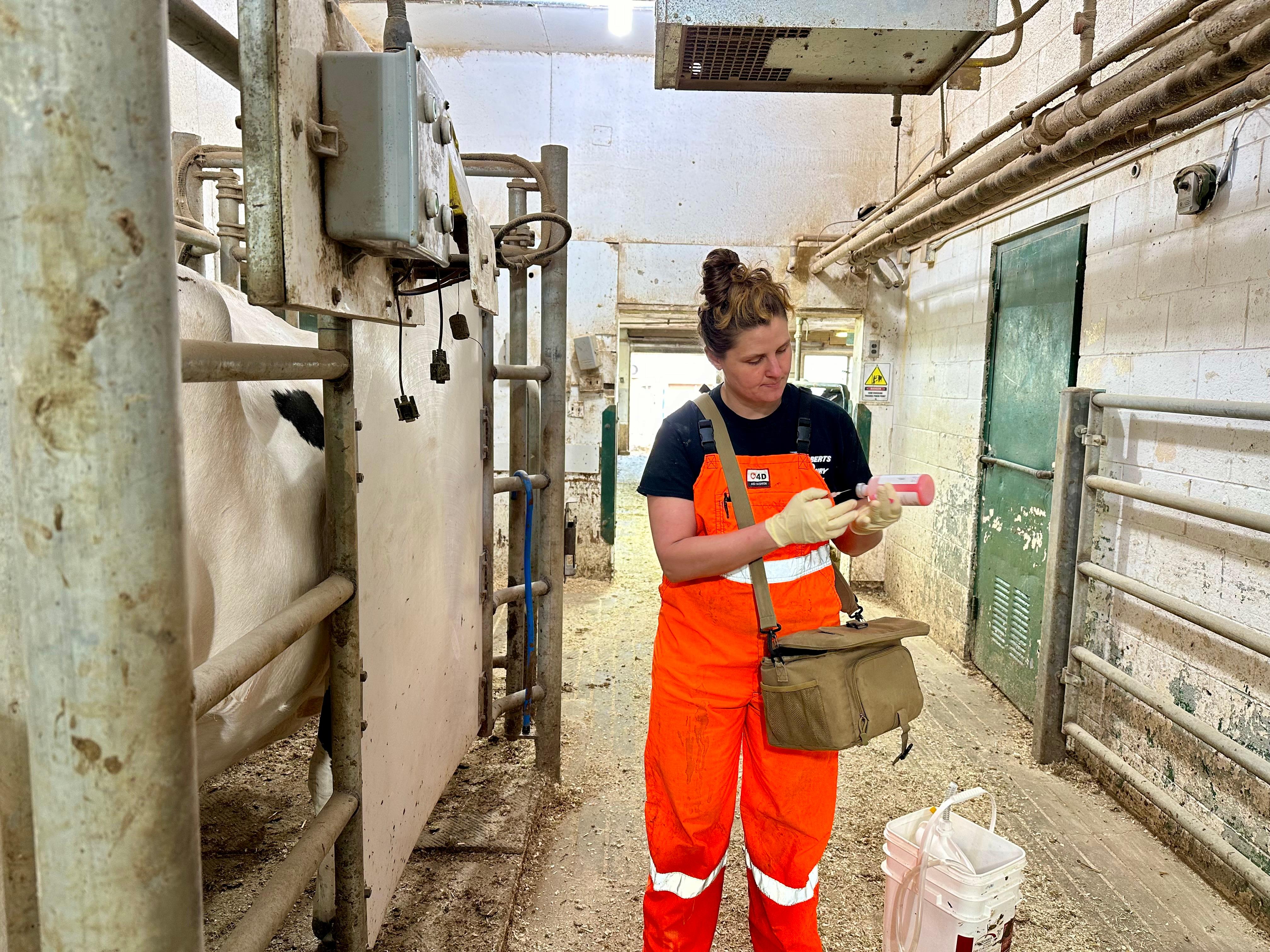
When the New York native made it to the East Lansing campus, she immediately sought the unique opportunity for student employment at the MSU Dairy Farm – learning the fundamentals of animal care and dairy farming alongside MSU faculty, veterinarians and farm professionals.
MSU employs students each semester to work and train in general stockmanship, calf feeding and care, cow care and milking, and equipment use and maintenance. Student employees are trained by MSU Dairy Farm staff in how to do their respective roles and then shadow and work alongside full-time staff to maintain the daily operations of the farm.
“I started working at the dairy farm my first year as a student. I started out on the toughest shifts: early mornings, late nights, in the cold and snow, but I fell in love with the cows and the people who worked with the cows,” Dominguez said.
Dominguez’s quick acumen and hard work fit right in with the MSU Dairy Farm community, and she started learning everything she could from faculty and long-time staffers like Randy Bontrager – a herdsperson at the dairy since 1992.
“It’s great to see Carolyn come back and work here. She really knows her stuff on the animals and does a great job in charge of the herd health checks and keeping tabs on the health of the animals,” Bontrager said.
Dominguez graduated from the MSU Lyman Briggs College with a degree in Animal Science in 2013, but it was the hands-on experiences she had as an undergraduate worker, that shaped her career as she began to reassess where she pictured her future as a dairy farmer and caretaker.
“I was so excited when I was accepted into the MSU College of Veterinary Medicine (CVM). I was realizing my dream to go to veterinary school and become a vet, but after one semester I was like, ‘this is not for me,’” Dominguez said.
“I had really grown accustomed to working side-by-side with the animals. I realized I missed being on the farm and interacting with the animals. Instead of someone who develops and writes standards and protocols to care for animals, I wanted to be the person caring for the animals myself. I remember going to my advisor and bawling in his office. I thought I was the biggest letdown.”
Dominguez’s advisor, former MSU CVM professor Dan Grooms, told her not to worry, “this is just a little detour. The world needs great herds people, and you are going to make a great herdsperson.”
Nearly a decade later, Dominguez is at the core of the operations of the nationally awarded MSU Dairy Cattle Teaching and Research Center.
Generations of Spartan herders
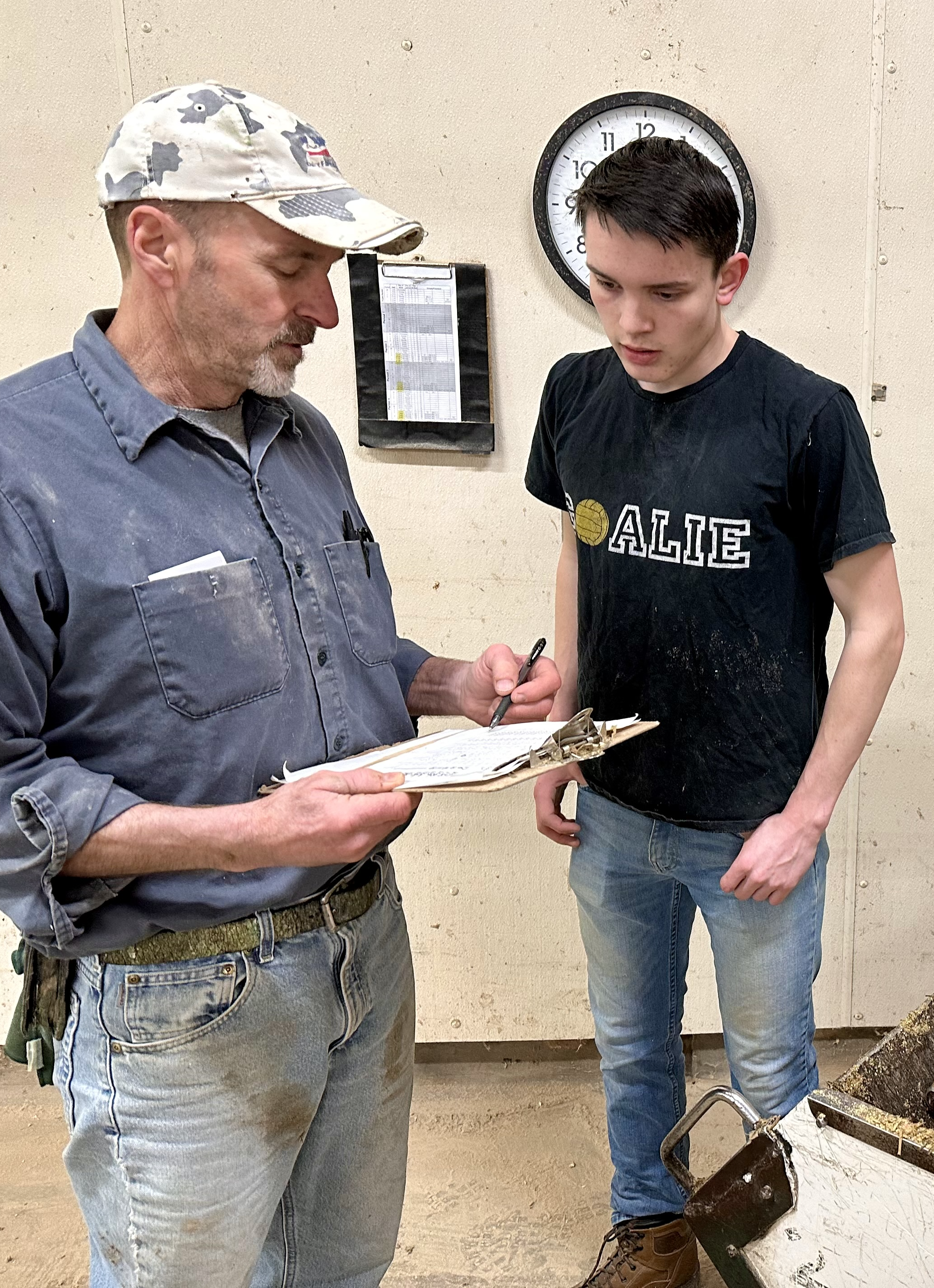
The landscape around the MSU Dairy Farm looks much different today than it did when Randy Bontrager was hired as a herder in November 1992 after retiring from running his own family dairy with his father.
Ongoing is a massive construction and renovation project designed to modernize the current farm, built in the early 1960s, to expand teaching, research and outreach capacity. The upgrades will provide decades worth of advancements in facilities and technology as well as the capacity to expand the herd to more than 600 cows.
Expansion and technology upgrades at the new dairy facility will allow researchers with MSU AgBioResearch, MSU College of Veterinary Medicine, and the MSU College of Agriculture and Natural Resources to expand their impact areas of nutrition, reproductive health and physiology, animal breeding and selection, dairy management and environmental sustainability through regenerative agriculture.
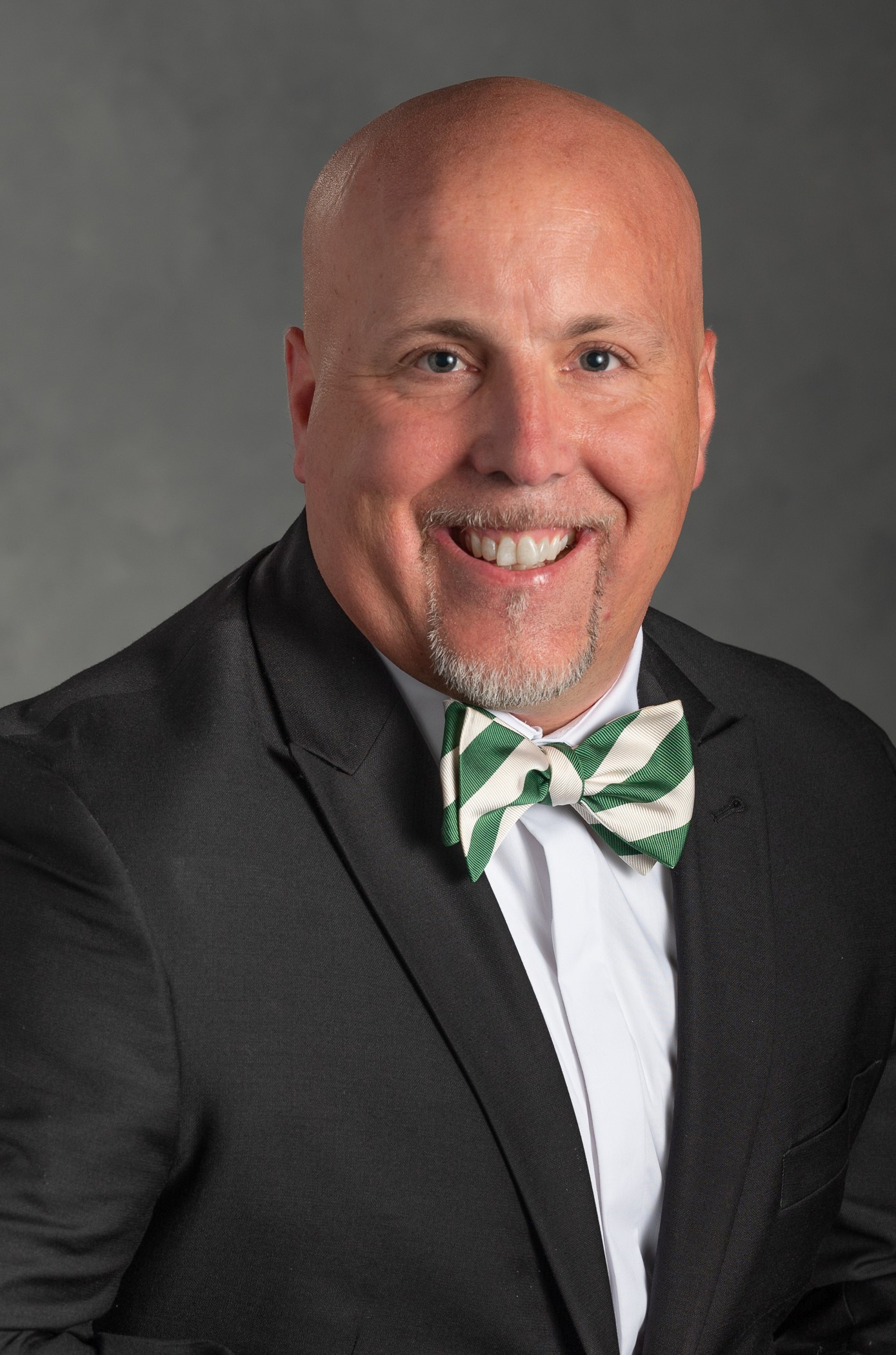
“Many of the research projects at the dairy farm are funded through the Michigan Alliance for Animal Agriculture, a state-funded small grant program. The dairy stakeholders identify the research priorities for M-AAA, which ensures the research is directly applicable to Michigan dairy farmers,” said James Averill, associate director of MSU AgBioResearch. “MSU Dairy staff are the first and last ones to see the dairy cattle daily, ensuring their overall health and wellness. Their commitment to the animals and facility allows our faculty to conduct cutting-edge research to improve animal agriculture. Research would not be possible without them.”
Bontrager has supported the research and teaching of dozens of MSU faculty and trained hundreds of MSU students in dairy farming practices, protocols and techniques in his three decades as a herder at MSU.
“We sold our cows from our family farm, and I had known the MSU Dairy Farm manager at the time, Bob Kreft, and he let me know about the opening and asked if I had any interest. I told him, ‘Well if I’m going to take care of someone else's cows, MSU would be the only place that I would do it,’” Bontrager said. ‘It’s been 31 years now, and I never have felt like I was coming to work. It’s my passion and I love it.”
Bontrager introduces new student employees to the routines of feed shifts, moving cattle, milking cattle, measuring and calculating feed, general cattle care and is the first person to introduce the students to the standards and expectations of the dairy farm staff and leadership. He said he has great trust knowing each new worker is getting the best training from MSU’s pipeline of dairy farm professionals.
“Cows are cows, despite everything that might change here on the farm. We have always fostered hard work and doing things the right way, and we have comfort in the competence of our staff. We have a lot more change than you would see at a lot of other dairies, so we have to be able to get new people trained quickly and trained the right way,” said Bontrager, who has seen the MSU Dairy Farm win multiple NQDA Platinum awards in his three decades.
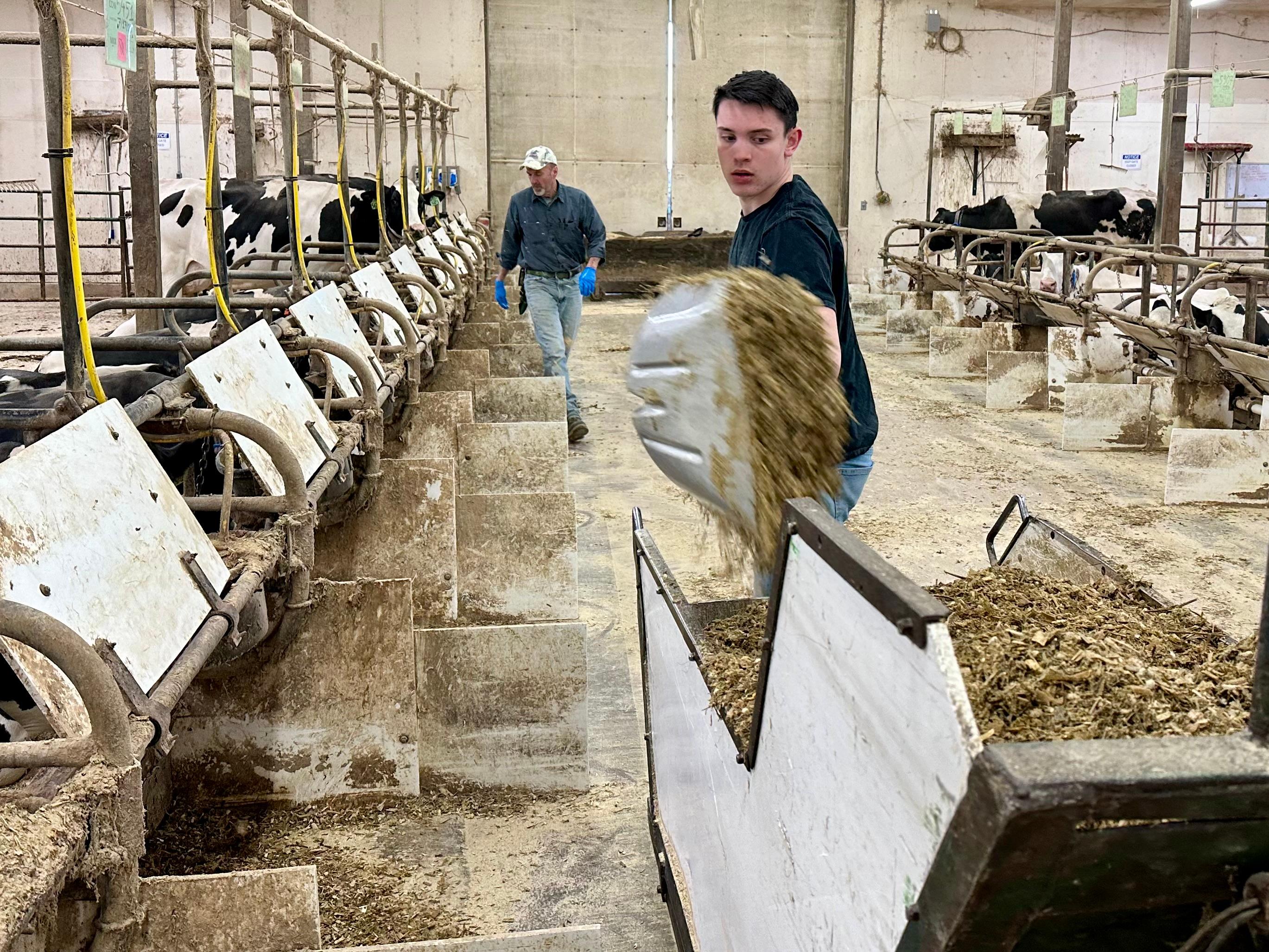
“The National Quality Dairy Award just serves as a nice pat on the back for us to know that all our work is paying off. This job comes down to the details and when we win an award like that, it says that we got a lot of details right every day with a unique work crew and unique priorities,” he said.
Dominguez enjoys teaching the fundamentals of dairy farming to students who are in the same boots she wore just a few years ago.
“Having the opportunity to work here as a student was life changing, because I didn't grow up on a farm. I don't have a farm at home to go back to. So, when I needed to learn about cows this was the first place that really taught me about cows,” Dominguez said. “For many of our students now, it is their first time on a farm, so I can relate. I like being able to teach students things that maybe nobody has had the chance to teach them before.”
A new dairy farm for a modern dairy industry
The new dairy facility will expand research capacity by increasing herd size to 680 in addition to creating modernized barns, feed centers, milking parlors and laboratories. The new facility, scheduled to begin operation in 2025, will provide spaces for student instruction. The $75 million upgrades will enhance MSU’s ability to support Michigan’s thriving dairy industry and its farmers, which contributes over $15 billion to the state’s economy each year.
The impact research at the farm has on his community of dairy farmers across the state of Michigan is another aspect of Bontrager’s job that keeps him engaged each day.
“One of our main points of focus is emphasizing that there is a lot of money in grants and a lot of time invested by the faculty to do their research. They have done all this work and prep, and now it's dependent on us to follow through daily to maintain certain parameters and protocols and data recording, so everybody remains on the same page and this important work gets done correctly,” Bontrager said.
The MSU Dairy Farm staff know with the excitement of the modern facility comes new challenges and training pass on to new student employees, but Bontrager said he is glad the farm will provide students with a more applicable learning experience.
“I’ve never worked in that type of modern dairy environment, with all the automation and robotics, so it will be a lot of new, exciting things to pick up on and learn,” Bontrager said. “Some of the things we teach now just can’t be replicated on modern dairy farms, because we are so outdated in places, so the new facility will more represent what they will see in the future.”
The visitor center at the new facility will feature an up-close view of cows in the parlor, and the dairy plans to offer public tours for observing its operations. Some parts of the old facility, such as the feed storage area, the anaerobic digester, and one of the cow barns, will continue to be used and open for view as well. Dominguez said she looks forward to a facility more welcoming to the public to learn about dairy farming.
“I'm ready for people to have more awareness of how dairy fits in with a sustainable world,” Dominguez said. “People need to be aware of where their food comes from and how dairy fits into the food system. I’m excited for people to learn about the conservation of dairy and the way manure usage and digestors can be used to make dairy more regenerative. I’ve always identified with the dairy farmers I’ve met in that they really care about the impact of what they are doing. I’ve always wanted to be a part of something bigger than just me and caring for our cows and training future dairy farmers allows me to do that here at MSU.”



 Print
Print Email
Email





